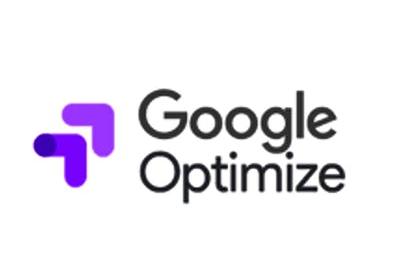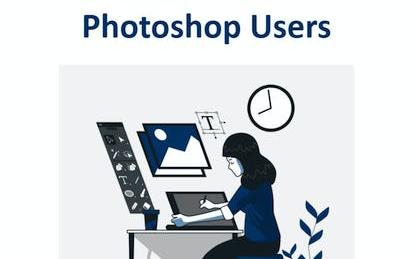

Our Courses

Classify Text into Categories with the Natural Language API
This is a self-paced lab that takes place in the Google Cloud console. In this lab you’ll learn how to classify text into categories using the Natural Language API.
-
Course by

-
 Self Paced
Self Paced
-
 1 hour
1 hour
-
 English
English

Theatre and Globalization
Learn how theatre and globalization have affected each other over the past century, and how to conduct your own research on global theatre histories.
-
Course by

-
 Self Paced
Self Paced
-
 9 hours
9 hours
-
 English
English

Transformer Models and BERT Model - 繁體中文
這堂課程將說明變換器架構,以及基於變換器的雙向編碼器表示技術 (BERT) 模型,同時帶您瞭解變換器架構的主要組成 (如自我注意力機制) 和如何用架構建立 BERT 模型。此外,也會介紹 BERT 適用的各種任務,像是文字分類、問題回答和自然語言推論。課程預計約 45 分鐘。
-
Course by

-
 Self Paced
Self Paced
-
 English
English

Calculus through Data & Modeling: Precalculus Review
This course is an applications-oriented, investigative approach to the study of the mathematical topics needed for further coursework in single and multivariable calculus. The unifying theme is the study of functions, including polynomial, rational, exponential, logarithmic, and trigonometric functions. An emphasis is placed on using these functions to model and analyze data. Graphing calculators and/or the computer will be used as an integral part of the course.
-
Course by

-
 Self Paced
Self Paced
-
 8 hours
8 hours
-
 English
English

Serverless Data Processing with Dataflow: Foundations
This course is part 1 of a 3-course series on Serverless Data Processing with Dataflow. In this first course, we start with a refresher of what Apache Beam is and its relationship with Dataflow. Next, we talk about the Apache Beam vision and the benefits of the Beam Portability framework. The Beam Portability framework achieves the vision that a developer can use their favorite programming language with their preferred execution backend.
-
Course by

-
 Self Paced
Self Paced
-
 3 hours
3 hours
-
 English
English

Python Tutorial
Start learning Python with the w3schools course and lay the foundations of your Programming skills. Python is a popular object oriented programming language. This is a structured and interactive version of the w3schools Python Tutorial. The course is self-paced with text based modules, practical interactive examples and exercises to check your understanding as you progress. Complete the modules and the final certification exam to get the w3schools certification.
-
Course by

-
 Self Paced
Self Paced
-
 37 hours
37 hours
-
 English
English

The Emergence of the Modern Middle East - Part I
This course will review the emergence of the modern Middle East from the fall of the Ottoman Empire, at the end of the First World War to the present. We will discuss the Ottoman legacy in the region and the Western imperial impact on the creation of the Arab state system. The course will review the rise and retreat of Arab nationalism, the problems of internal cohesion of the Arab states, issues of religion and state, and the evolution of Islamist politics.
-
Course by

-
 Self Paced
Self Paced
-
 7 hours
7 hours
-
 English
English

Topics in Applied Econometrics
In this course, you will discover models and approaches that are designed to deal with challenges raised by the empirical econometric modelling and particular types of data. You will: – Explore the motivations of each approach by means of graphs, preliminary statistics and presentation of economic theories – Discuss the problem of identification of the parameters, and how to address this problem by modelling simultaneous equations and causality in economics.
-
Course by

-
 Self Paced
Self Paced
-
 28 hours
28 hours
-
 English
English

Linux Basics: The Command Line Interface - 6
This course will introduce you to Linux, a powerful operating system used by most professional developers! Why add Linux to your C programming skills? Most people use Linux without knowing it! Whether you use a smartphone, search the web, or use an ATM, each time Linux is involved somewhere in the background. It is the most used operating system for embedded devices and high-performance servers.
-
Course by

-
 Self Paced
Self Paced
-
 8 hours
8 hours
-
 English
English

Working with Objects in C++
This course is the fourth of five courses aiming to help you to become confident working in the object-oriented paradigm in the C++ language. This specialisation is for individuals who want to learn about objected oriented programming. It's an all-in-one package that will take you from the very fundamentals of C++, all the way to building a crypto-currency exchange platform. During the five courses, you will work with the instructor on a single project: a crypto-currency exchange platform.
-
Course by

-
 Self Paced
Self Paced
-
 12 hours
12 hours
-
 English
English

Google Sheets - Advanced Topics
This course builds on some of the concepts covered in the earlier Google Sheets course. In this course, you will learn how to apply and customize themes In Google Sheets, and explore conditional formatting options. You will learn about some of Google Sheets’ advanced formulas and functions. You will explore how to create formulas using functions, and you will also learn how to reference and validate your data in a Google Sheet. Spreadsheets can hold millions of numbers, formulas, and text. Making sense of all of that data can be difficult without a summary or visualization.
-
Course by

-
 Self Paced
Self Paced
-
 3 hours
3 hours
-
 English
English

Negotiation Strategies and Styles
The dilemma of the negotiator is a phenomenon that is derived from the tension that arises when, in the light of a specific situation, the optimum negotiation strategy must be discerned.
-
Course by

-
 Self Paced
Self Paced
-
 25 hours
25 hours
-
 English
English

Quick resumeCreator with JavaScript
This project is for people who are interested in learning how JavaScript works, how it takes data from a plain HTML form and uses it to output another HTML document.
-
Course by

-
 Self Paced
Self Paced
-
 3 hours
3 hours
-
 English
English

Test your Django views and forms using Selenium
In this 2-hour long project-based course, you will learn how Selenium can be integrated with your Django project.
-
Course by

-
 Self Paced
Self Paced
-
 2 hours
2 hours
-
 English
English

Introduction to Quantum Information
The course provides an introduction to quantum information at a beginning graduate level. It focuses on the fundamental understanding of how information is processed with quantum systems and how the quantum properties apply to computing and communication tasks. The course begins by presenting quantum theory as the framework of information processing. Quantum systems are introduced with single and two qubits.
-
Course by

-
 Self Paced
Self Paced
-
 11 hours
11 hours
-
 English
English

Getting Started with Microsoft OneDrive
By the end of this project, you will learn how to use the basic functions of Microsoft OneDrive using a free version of Microsoft OneDrive. OneDrive is a file and document storage offering from Microsoft that allows the user to access their saved documents from any internet accessible device.
-
Course by

-
 Self Paced
Self Paced
-
 2 hours
2 hours
-
 English
English

Introduction to Cybersecurity Essentials
With this beginner friendly course, learn fundamental Cybersecurity skills that are crucial for anyone using computing devices and connecting to the Internet. You will first learn to recognize common security threats and risks that individuals and organizations may face, such as theft, tampering, and destruction of sensitive information. You’ll then discover the characteristics of cyber-attacks and learn how you can employ best practices to guard against them. Next, you’ll learn about the best practices against cyberattacks.
-
Course by

-
 Self Paced
Self Paced
-
 13 hours
13 hours
-
 English
English

Math for AI beginner part 1 Linear Algebra
'Learn concept of AI such as machine learning, deep-learning, support vector machine which is related to linear algebra - Learn how to use linear algebra for AI algorithm. - After completing this course, you are able to understand AI algorithm and basics of linear algebra for AI applications.
-
Course by

-
 Self Paced
Self Paced
-
 7 hours
7 hours
-
 English
English

SQL for Data Science Capstone Project
Data science is a dynamic and growing career field that demands knowledge and skills-based in SQL to be successful. This course is designed to provide you with a solid foundation in applying SQL skills to analyze data and solve real business problems. Whether you have successfully completed the other courses in the Learn SQL Basics for Data Science Specialization or are taking just this course, this project is your chance to apply the knowledge and skills you have acquired to practice important SQL querying and solve problems with data.
-
Course by

-
 Self Paced
Self Paced
-
 35 hours
35 hours
-
 English
English

Data Mining Methods
This course covers the core techniques used in data mining, including frequent pattern analysis, classification, clustering, outlier analysis, as well as mining complex data and research frontiers in the data mining field. This course can be taken for academic credit as part of CU Boulder’s MS in Data Science or MS in Computer Science degrees offered on the Coursera platform. These fully accredited graduate degrees offer targeted courses, short 8-week sessions, and pay-as-you-go tuition. Admission is based on performance in three preliminary courses, not academic history.
-
Course by

-
 Self Paced
Self Paced
-
 24 hours
24 hours
-
 English
English

Create an A/B web page marketing test with Google Optimize
In this 1.5-hour long project-based course, you will learn how to create an A/B web page marketing test with Google Optimize and Google Analytics, personalizing weight option, goals, targeting, activation, and using a sample Google Sites to practice. Note: This course works best for learners who are based in the North America region. We’re currently working on providing the same experience in other regions.
-
Course by

-
 Self Paced
Self Paced
-
 2 hours
2 hours
-
 English
English

Visualization for Statistical Analysis
In this project you will learn about several visualization techniques and their importance for Statistical Analysis.
-
Course by

-
 Self Paced
Self Paced
-
 3 hours
3 hours
-
 English
English

BigQuery Fundamentals for Redshift Professionals
This course covers BigQuery fundamentals for professionals who are familiar with SQL-based cloud data warehouses in Redshift and want to begin working in BigQuery. Through interactive lecture content and hands-on labs, you learn how to provision resources, create and share data assets, ingest data, and optimize query performance in BigQuery. Drawing upon your knowledge of Redshift, you also learn about similarities and differences between Redshift and BigQuery to help you get started with data warehouses in BigQuery.
-
Course by

-
 Self Paced
Self Paced
-
 6 hours
6 hours
-
 English
English

Big Data Analysis with Scala and Spark (Scala 2 version)
Manipulating big data distributed over a cluster using functional concepts is rampant in industry, and is arguably one of the first widespread industrial uses of functional ideas. This is evidenced by the popularity of MapReduce and Hadoop, and most recently Apache Spark, a fast, in-memory distributed collections framework written in Scala. In this course, we'll see how the data parallel paradigm can be extended to the distributed case, using Spark throughout.
-
Course by

-
 Self Paced
Self Paced
-
 28 hours
28 hours
-
 English
English

Easing the Transition to GIMP for Photoshop Users
In this project, you learn about setting up GIMP to work more like Photoshop.
-
Course by

-
 Self Paced
Self Paced
-
 3 hours
3 hours
-
 English
English



